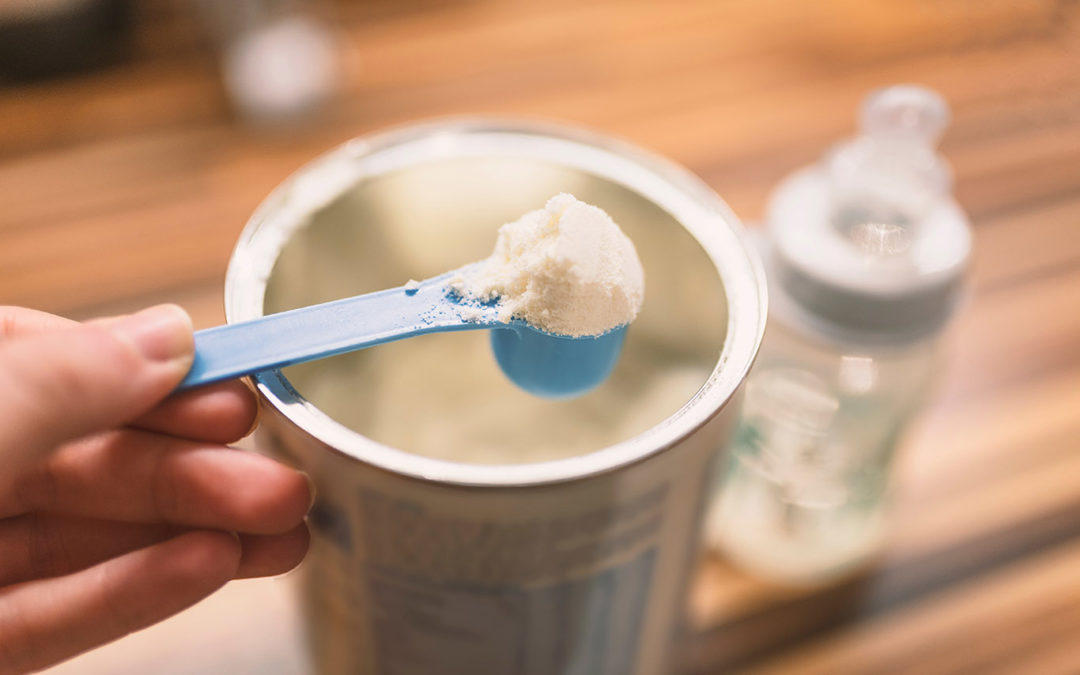The U.S. FDA issued a recall for Abbott Laboratories baby formula products – specifically Similac, Alimentum, and EleCare – due to concerns over bacterial infections linked to the formulas. You can find the full list of recalled products here. You can visit Abbott’s recall website to find out if you have affected formula in your home.
The Illnesses that Sparked the Recall
Four babies were made ill by either Cronobacter sakazakii or salmonella after ingesting Similac, Alimentum, or EleCare formulas from Abbott’s Sturgis, Michigan factory. The total number of affected infants is still unclear due to the FDA’s Cronobacter surveillance protocols, but there are multiple potential deaths linked to the powdered formulas.
Cronobacter bacteria can cause potentially fatal infections, including sepsis and meningitis. Babies with either infections may exhibit symptoms like jaundice, abnormal breathing and behavioral changes.
The current FDA batch recall advisory covers Similac, Alimentum, and EleCare formula with:
- First two digits of lot code: 22 through 37
- Container codes: K8, SH or Z2
- Expiration Dates: April 1, 2022 or later
If you have any potentially contaminated products in your home, you should cease using them immediately. If your child shows any signs of illness or distress, immediately seek medical attention.
The team at the Weycer Law Firm is committed to representing Houston parents in all types of product liability claims. Manufacturers have a duty to make and distribute safe products that are properly labelled with potential risk factors. When a company’s mistake results in a serious illness or loss of life, it’s important that they are held accountable.
If your baby was affected by contaminated baby formula, call the Weycer Law Firm at (713) 668-4545.
No Stranger to Baby Formula Lawsuits
This is not the first time in recent months that Abbott has faced legal troubles over its baby formula.
A strict liability lawsuit alleging design defects, negligence, intentional misrepresentation and failure to warn about Similac and Enfamil necrotizing enterocolitis (NEC) risks was filed by a group of parents in December 2021.
In January 2022, a Texas mother filed suit against the company after her baby developed necrotizing enterocolitis, which has previously been linked to Similac infant formula.
A New Jersey mother also filed suit in May 2022 after her premature baby was diagnosed with NEC. Her baby was fed a combination of Similac Special Care 24 High Protein, 30 High Protein, and breast milk.
All the suits make similar allegations. Abbott failed to warn parents of an increased risk for NEC in preterm babies. The packaging of both Enfamil and Similac lines of baby formula do not include potential NEC side effect warnings.
Premature babies have an increased risk for developing NEC. Studies have long shown NEC is six to 10 times more likely to develop if a preterm infant is fed cow’s milk-based formula (like Similac) instead of breast milk, and three times more likely in premature infants fed with a combination of breast milk and cow’s milk-based formula.
How Hard Will It Be for Parents to Win Their Case?
Abbot has continued to deny their formula was the cause of these latest Cronobacter sakazakii cases.
However, lawsuits relating to tainted baby formula causing the infection are not new. In October 2012, families sued Mead Johnson Nutrition with claims alleging negligence dating back to 2000. In that case, both the FDA and the CDC said they found no evidence of Cronobacter sakazakii contamination in the plant and did not recommend a recall related to those illnesses.
In this case, the FDA does have evidence that a sample of Abbott formula from a contaminated batch tested positive for Cronobacter bacteria.
Far Reaching Consequences of the Baby Formula Recall
Another important aspect of this story, and a facet that may impact litigation against Abbott Nutrition, was an October 2021 whistleblower report about the practices at the Sturgis, Michigan baby formula factory. Allegations in the report included things like:
- Poor cleaning practices
- Failure to maintain clean room environments
- Falsified records
- Broken labeling machines
- Failure to properly check formula batches for bacteria
The shutdown of the factory has garnered a huge amount of national media attention. Parents across the country are facing critical shortages of baby formula resulting from the recalls and shutdown. This is due in large part due to a 17.5 percent tariff on baby formula imports, stringent FDA safety standards and government-sanctioned semi-monopolies for baby formula manufacturers in the United States.
What’s too frequently given short shrift in media stories about the shortages is the root cause – Cronobacter sakazakii bacterial infections.
If you or someone you know is the parent of a baby potentially affected by contaminated baby formula, don’t hesitate to contact the Weycer Law Firm at (713) 668-4545.

